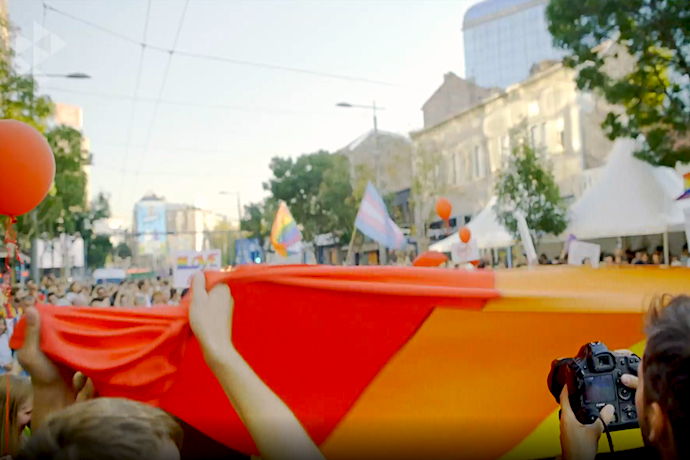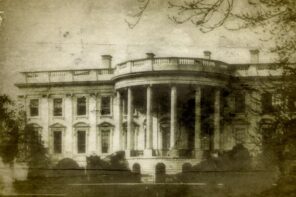EuroPride is scheduled to take place in the Serbian capital of Belgrade next month. It’s the first time that EuroPride will take place in a Southeastern European country and the first time it will be held in a majority Orthodox country (EuroPride 2020 was scheduled to take place in Thessaloniki, Greece but was canceled due to the pandemic).
The position of LGBTQ+ people in Serbian society is much more tenuous than one might believe given that the country’s prime minister, Ana Brnabić, is a lesbian. LGBTQ people in Serbia face widespread discrimination and abuse. Polling data suggests that about half of Serbians would not want a gay or lesbian neighbor, and three-quarters do not believe that homosexuality should be accepted by society. Furthermore, since the first Belgrade Pride Parade in 2001, there have been numerous instances of anti-LGBTQ violence associated with Pride events, some of which have been serious enough to force the cancellation of events.
Not surprisingly, the Serbian Orthodox Church has been one of the chief promulgators of anti-LGBTQ rhetoric in the country. Orthodox priests have led and even blessed violent counter demonstrators at Pride celebrations. And now, in anticipation of EuroPride, Serbian Orthodox Bishop Nikanor (Bogunović) of Banat has suggested that it’s not only acceptable, but perhaps necessary, to take up weapons to prevent EuroPride from “desecrating the holy city of Belgrade.”
While once it might have been possible (though not necessarily advisable) to dismiss Nikanor’s dangerous and egregious comments as the bizarre ranting of a parochial bishop, the confluence of events in Serbia, the Orthodox Church, and the wider world demand that threats like these be taken seriously.
Bishop Nikanor’s threats should be understood in the context of Patriarch Kirill’s attempts to blame the Russian invasion of Ukraine on LGBTQ people and particularly Pride parades and—much closer to home—to the recent statement released by the Holy Synod of the Orthodox Church in America seeking to silence discussion on LGBTQ issues. This is not to mention the vicious and extreme attack on Archbishop Elpidophoros (the presiding primate of the Greek Orthodox Archdioceses in America, a jurisdiction of the Ecumenical Patriarch of Constantinople) after he presided over the baptism of two children born to a gay couple.
Antagonism toward LGBTQ people has become a litmus test of a certain kind of traditionalism within the Orthodox world and the issue at the center of a battle over Orthodoxy and modernism that’s had wide-reaching consequences—far beyond the Orthodox Church.
While it might be easy to correlate the uptick in anti-LGBTQ hatred within global Orthodoxy with the influence of American evangelical Christianity, it’s unlikely that most American audiences understand the full consequences of what’s been wrought. It must be understood that within the Orthodox context the most vocal anti-LGBTQ hatred has come to reside in the same factions that embrace aggressive, and one might say even genocidal, geopolitics that advocates for everything from the Russian invasion of Ukraine to the ethnic cleansing of Kosovar Muslims.
These positions are made palatable to certain Western audiences as a result of their common belief that the acceptance of LGBTQ people poses a threat to society. An acceptable violent homophobia is used as cover for forms of violent xenophobia that Westerners might find less easy to publicly endorse.
In this landscape neutrality is not possible. Those who silently support the most egregious anti-LGBTQ rhetoric and actions of Orthodox clergy and laity are also signing themselves on to the actions of some of the world’s worst and most menacing actors. In the very first piece I wrote for Religion Dispatches, six years ago this month, I called on moderate and progressive American Orthodox Christians to challenge Russia’s anti-LGBTQ propaganda law. Using the example of calls in the early 2000s for “moderate Muslims” to challenge Islamic terrorism, I wrote:
“…just as we (admittedly unfairly) demand that progressive and moderate American Muslims challenge the most radical members of their tradition no matter where they exist in the world, so too must American Orthodox Christians hold to account those who wield Orthodoxy as a weapon.”
Today, as the worst consequences of an anti-LGBTQ Orthodoxy become apparent on a global scale, I would extend this call beyond America and increase its urgency. When we are silent, we are complicit.
EuroPride will, God willing, take place in Belgrade—and it will do so, one can hope, without violence. What I am certain of, based on recent history, is that if there is violence, it will be with the blessing of some Orthodox clerics, in Serbia and beyond. And this can only continue if Orthodox Christians let it.





